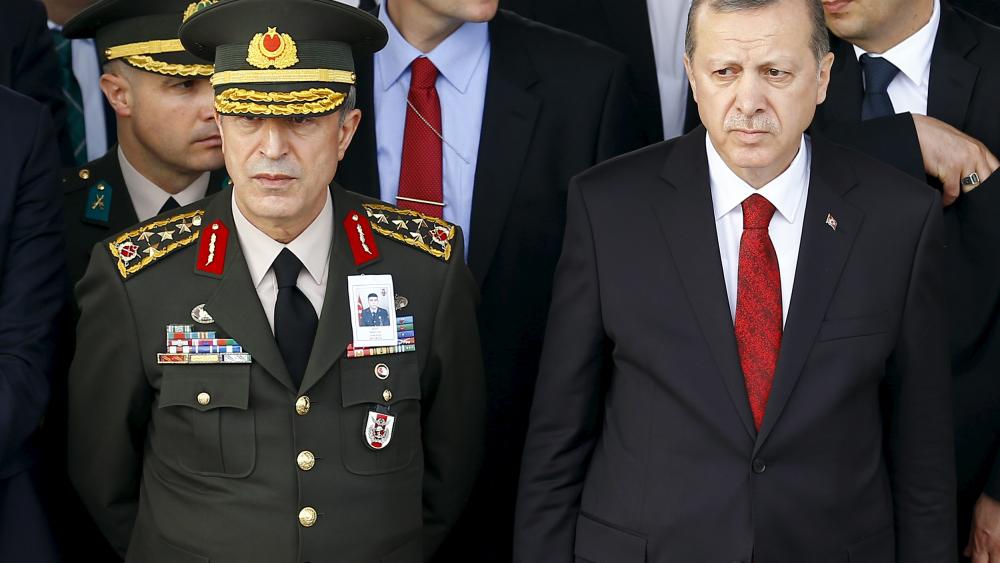This is an update to a 2017 piece by the same name. The original can be found here: https://affiliate-network.co/2017/07/russia-gas-cartel/
As the disastrous civil war in Syria stretches into its eighth year, the conflict has taken shape as a struggle for influence between Russia and the United States and their respective proxies. The Russian interest in Syria, initially limited to protecting the naval base in Tartus and keeping Bashar al-Assad in power, is now widely believed to have a regional and global power dynamic. Russia controls 26% of proven global natural gas reserves and has long been frustrated by its inability to export to customers other than the European Union (EU) and NATO member states. Not only does this geographic reality leave Russia dependent upon a single block of customers that has access to other suppliers, but it limits Moscow’s ability to influence politics with its overwhelming market share. In late 2015 however, the Russian military mission in Syria began to present other opportunities to exploit the politics and the pipelines that crisscross that war-torn region, thus giving birth to the prospect of a new natural gas cartel.
The global energy market is changing. Traditional, fossil-based energy supplies like coal and oil are becoming increasingly expensive to find and extract. Political turmoil in the Middle East coupled with popular pressure to address climate change, make natural gas a more attractive option for future energy needs, particularly in Europe. With average global gas consumption likely to increase approximately 1.6% annually until 2040, Europe needs a strategy to secure supplies from beyond the Russian monopoly. This is not a minor concern in Brussels. Moscow’s 2014 closure of gas pipelines into Ukraine highlighted the linkage of Europe’s energy future to Russia’s political ambitions, yet EU sanctions against the Russian oil and gas industry are seen as a delayed and ineffective western response. Europe, like Russia, now has direct interests in the massive natural gas reserves of the Middle East.
A Layered Strategy
The war in Syria is a catalyst for strategic cooperation between Russia and Iran. By bringing together the combined weight of their massive natural gas reserves, Moscow and Tehran would be able to influence Europe in powerful ways. If they bring Qatar’s reserves into the deal they could create an OPEC-like gas cartel with control of 60% of the world’s reserves; a frightening degree of dominance over an increasingly strategic commodity. However, there are many geographic and political obstacles to this ambition, and it is in these spaces the Russian strategy is taking shape.

Distribution of Iranian reserves to Europe depends on the outcome of conflicts in Syria and Iraq and on the political independence of Kurdistan. These countries contain much of the existing regional natural gas pipeline transmission capacity. Stabilization of those conflicts presents an opportunity for positive Russian engagement with Turkey and formed the basis for a trilateral accord signed in Kazakhstan in 2017 between Russia, Turkey, and Iran aimed at ending the Syrian civil war; an agreement made possible by an expansion of the Russian military mission there. Subsequent talks reaffirmed the accord in August 2019. Turkey, with an intense interest in the political future of Kurdistan, plays a unique role by controlling access to many of the pipelines planned to transport natural gas to Europe. More importantly perhaps, Turkey is the southernmost outpost of NATO and hosts the important US military base at Incirlik.
The notable absence of the EU, the US, and the United Nations from the Kazakhstan talks reflects an important aspect of Russia’s strategy: limiting western — particularly US — influence in the region. Though Iran is an enthusiastic and powerful ally in this endeavor, strategy alone is not enough as the US has some very real ties to the region. American bases in Turkey, Iraq, Kuwait, Bahrain, and Qatar form a defensive network that bolsters the political stability of many of Iran’s rivals; not the least of which are Israel and Saudi Arabia. As mentioned, Turkey’s own security is still based largely on NATO, and most of the Gulf Emirates are completely dependent on American hard power for their defense. Given robust and longstanding support for this political-military structure in Washington, it is not surprising that Russia and Iran are exacerbating tensions between all of America’s allies in the region, particularly Qatar and Saudi Arabia.
Russia and Iran are the unseen beneficiaries of fractured relations between the two important US allies. Saudi Arabia’s main regional rival, Iran, is hardly an ally of Qatar, though enduring cultural links exist between the two states that can form a basis for renewed affinity. There is evidence Russia is encouraging an economic tie as well through business deals between Rosneft, the integrated oil company controlled by Moscow, and the Qatar Investment Authority (QIA). It is here, where Russian, Iranian, and Qatari interests converge, that the possibility of a joint pipeline project begins to make sense.

Overland pipeline transport of gas reserves from the Qatari North Dome and Iranian South Pars gas fields may ultimately converge at the existing terminal in Ceyhan, Turkey but could take several different paths on either side of the Gulf. Russia prefers a nearly completed pipeline, — IGAT-IX, above in black — along the Iran-Iraq border, while the US prefers a route for Qatari gas that transits Saudi Arabia, Jordan, and possibly Israel and Syria. The American plan seems unlikely for now however, with strong signs that most Qatari gas will be transported via Liquified Natural Gas (LNG) vessels to Asia. Achievement of the Russian design depends upon three key elements: politically isolating the United States, fracturing its allies, and stabilizing the Syrian conflict on terms that are favorable to the Kremlin.
Though Russia clearly hopes to position itself as the lynchpin in the arrangement, neither Moscow nor Tehran possess the technology required to construct IGAT-IX or the high-end LNG export facilities required at its terminus. For that they require easing of western sanctions that currently prohibit US or European oil companies such as Exxon-Mobil from sharing technology. The framework for this collaboration already exists. In August 2011, Russian President Putin, and the Executive Chairman of Rosneft, Igor Sechin, met Rex Tillerson in Sochi when he was still CEO of Exxon-Mobil. There, the three signed co-operation agreements for ten joint ventures, including drilling projects in the Russian Arctic, exploration in the Black Sea, a joint Arctic research center, and substantial options for Rosneft to invest in projects in the Gulf of Mexico and Texas. Consequently between 2011 and 2013, Exxon-Mobil became the partner of choice for Rosneft and now puts Russia and Iran high on the priority list for exploration. The reciprocal cooperation and the elevation of Tillerson to Secretary of State increased the expectation that sanctions would eventually be lifted, or at least not increased. This expectation survived Tillerson’s tenure as Secretary of State. A 2017 bill for increased sanctions against Russia, which included prohibitions against certain dealings with its oil and gas industry, floundered in Congress due to opposition from the White House and the US oil lobby. A 2019 version, introduced by a bipartisan group of Senators in February, has made no progress whatsoever.
The Cost of Inaction
The prospect of Russia and Iran controlling 60% of the world’s proven natural gas reserves aims right at the heart of European security. Addressing it will require energy-specific strategies that not only reduce demand through the use of renewable sources, but also political solutions that guarantee supply by stabilizing the Middle East. With European unity hamstrung by homegrown nationalist movements, and the United States distracted by an endless series of domestic political dramas, it is difficult for either to formulate such strategies for the long-term. While the West limits its efforts in the Middle East to defeating the Islamic State of Iraq and the Levant (ISIL), Russia and Iran are playing a much broader game that will ultimately be more effective.
The potential for a tightening of gas supply options is a sober call for Europe to overcome domestic distractions and concentrate on a comprehensive energy security strategy; one that incorporates development and commercialization of a suite of renewable energy technologies. This should include solar and offshore wind, advances in nuclear fusion, offshore methane gas exploration, and clean, dry fracking. Until Europe reduces its reliance on Russian gas and takes measures to ensure political stability in the Middle East, there will be a risk of unwanted influence from Moscow and continued uncertainty.
 Chris Golightly is an Independent Consulting Engineer specializing in offshore renewable energy, based in Brussels. Prior to 2010 he worked in the Oil & Gas industry.
Chris Golightly is an Independent Consulting Engineer specializing in offshore renewable energy, based in Brussels. Prior to 2010 he worked in the Oil & Gas industry.




 Nuno Felix is a former non-commissioned officer with Portuguese Army Special Operations Forces. He is a sniper and special reconnaissance expert and is currently working as a consultant to top executives in the financial sector.
Nuno Felix is a former non-commissioned officer with Portuguese Army Special Operations Forces. He is a sniper and special reconnaissance expert and is currently working as a consultant to top executives in the financial sector.